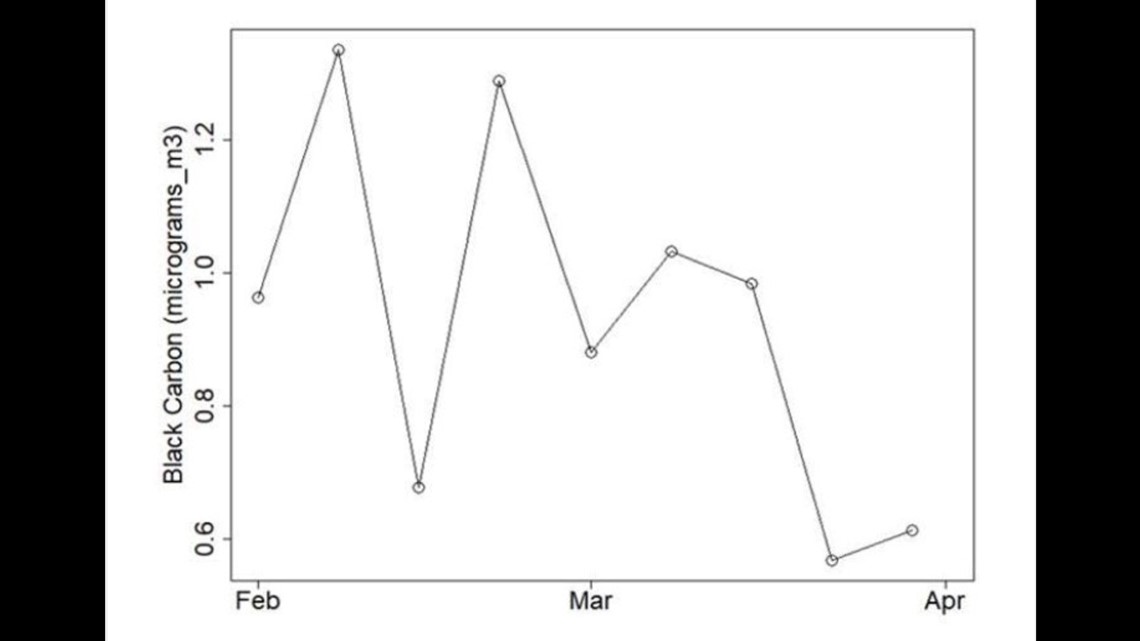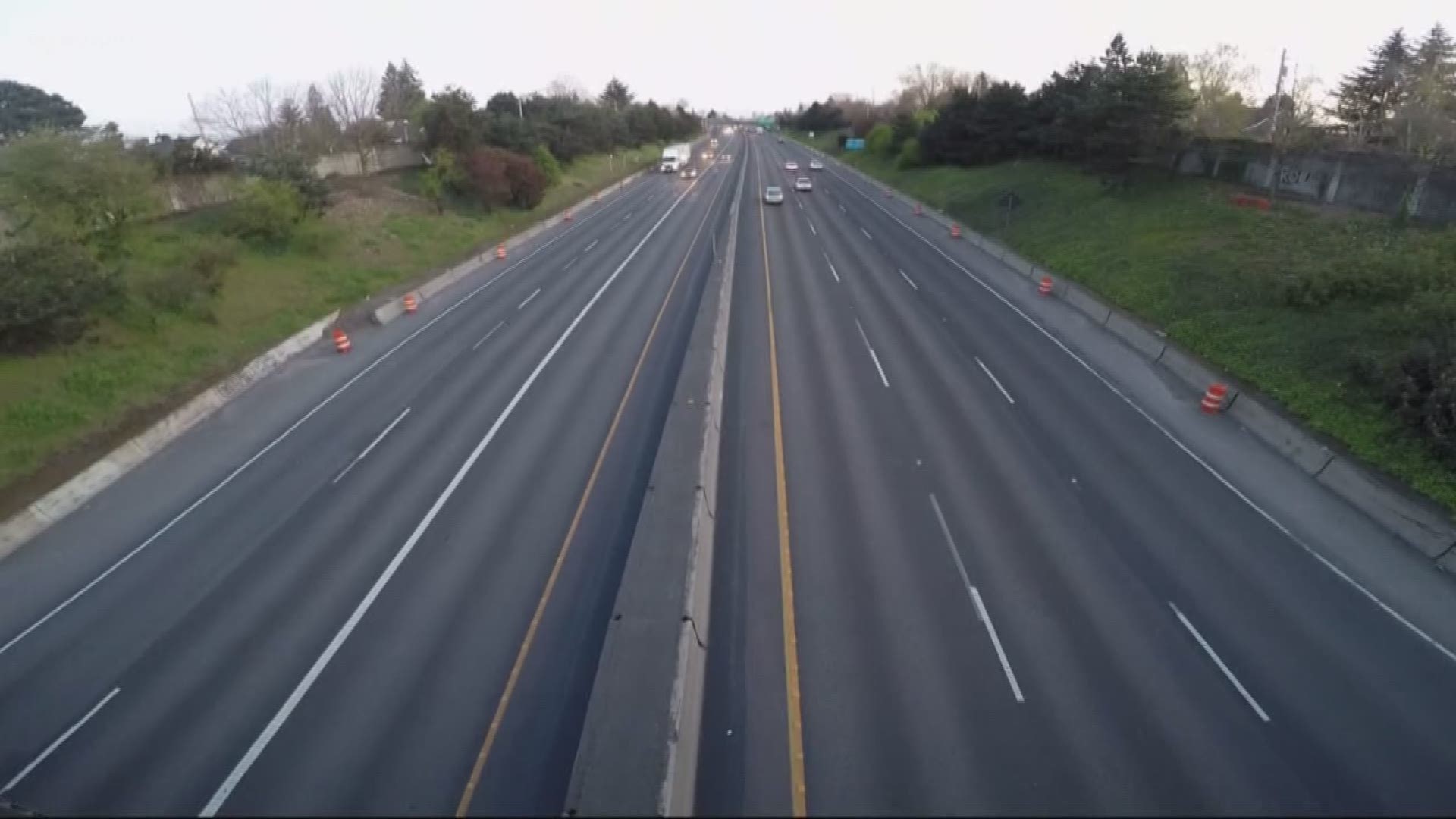PORTLAND, Ore. — If you look at Portland interstates during rush hour these days, the significance lies in what you won't see: a lot of cars. Many people are working from home or have lost their jobs due to the coronavirus. Researchers say the lack of vehicle traffic is impacting something else we can't see: the air we breathe.
Every week, scientists with the Department of Environmental quality collect and analyze air samples from a monitoring station off Interstate 5 near Tualatin. The latest data obtained by KGW showed a continuing downward trend for two pollutants found in vehicle emissions: nitrogen oxide and black carbon.
In late March after many people started working from home or lost their jobs, the team counted 15 parts-per-billion of nitrogen oxide—a 61% reduction from the month before. As for black carbon, a known carcinogen, they found .57 micrograms-per-cubic-meter in late March— a 56% reduction over one month. The percentages reflected a similar reduction of cars on the road.


“Traffic has gone down almost by half,” said Linda George, a professor of environmental science and management at Portland State University.
Both George and DEQ officials stressed that this time of year, air quality is driven more by weather factors such as wind, than car emissions.
“You'll see the air was even cleaner in January and that's because we had so much wind,” said George.
George said what’s important to note is the downward trend. She believed a couple more weeks of data would solidify the correlation between driving and air quality, a potentially useful data set born from a dire situation.
“For us to see if we were to move into a society where we're driving that much less, how much better will our air be?” asked George.
George also wondered how such a change might impact what we spend on health care. A PSU study found that trees in Portland reduced some nitrogen dioxide levels by 10%, a finding they translated into an annual savings of $7 million dollars in health-related costs.
George said it all underlines something people are more aware of now than ever.
“We're very vulnerable creatures in terms of what's in the air.”

